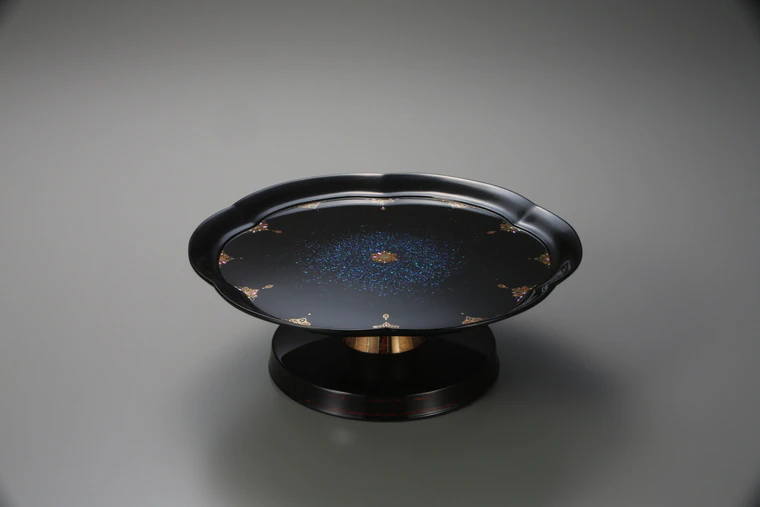Flower-shaped Tray with Design in Makie and Mother-of-Pearl Inlay
H 8.0 x W 21.0 x D 21.0 cm,Year.2014Yasuhiro Asai
1983 -- Lacquerware
- Awarded 6 times at the Japan Kōgei Assoc. Exhibition
-
Price Range
$20,000 - 96,000
Info
The prices of the artworks on Gallery Japan are determined by the artists themselves and are published directly on the website.
close
About the Artwork
The tray is made of dry lacquer and the foot is made of turned zelkova wood.
Description
-
CategoryLacquerware
-
DimensionsH 8.0 x W 21.0 x D 21.0 cm
-
Year presented2014
-
Paulownia BoxIncluded
-
InstructionsTo clean, wash with a soft sponge and wipe with a dry cloth.
As lacquerware is vulnerable to UV rays, avoid direct sunlight and store in the paulownia box when not in use to keep the artwork in good condition.
Techniques Used
Dry lacquer
For works of dry lacquer (kanshitsu), first a clay form is created and plaster is used to take a mold of the form. Next, repeated layers of hemp cloth and lacquer are applied to the mold until they are built up to the desired thickness. Finally, the mold is removed and additional coats of lacquer are applied to finish the piece. The hemp fibers are strengthened when the lacquer bonds with them, making dry lacquer an excellent technique for creating sturdy forms with a significant degree of freedom.
Maki-e
Maki-e (literally “sprinkled pictures”) is a representative lacquerware technique that originated in Japan around 1,200 years ago. Maki-e is done by painting lacquer motifs on the surface of a piece using a fine brush and then sprinkling gold powder onto the lacquer before it hardens, producing luxurious decorations.
Metal sheet inlay
Metal sheet inlay (hyōmon) is a technique that involves cutting shapes out of thin sheets of gold, silver, or other metals to create an inlay motif.
Mother-of-pearl inlay (Raden)
Mother-of-pearl inlay (Raden) is a decorative technique that uses the iridescent inner layer of abalone shell, turban shell, pearl oyster shell, or other mollusk shells. The technique came to Japan from China 1,300 years ago, and pieces featuring mother-of-pearl inlay are included among the artifacts at the Shōsōin Repository in Nara.
Please feel free to contact us to commission work, check artworks available for purchase etc.

